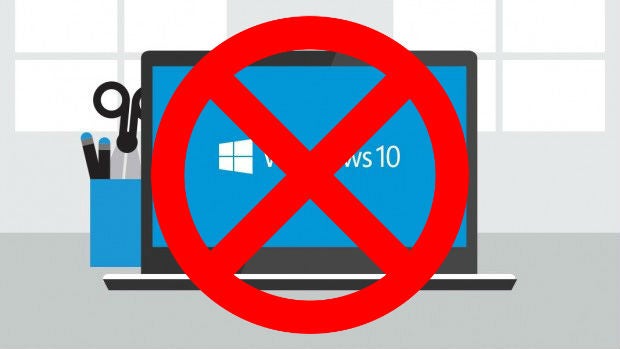Microsoft accused of ‘blatantly disregarding’ user choice and privacy with Windows 10

Microsoft has taken another hammering from a privacy rights group over its attempts to force Windows 10 onto PC users, as well as its practice of harvesting acres of data from software use.
The Electronic Frontier Foundation (EFF) says Microsoft’s efforts to reach 1 billion users with Windows 10 by the end of 2018 resulted in the firm ‘blatantly disregarding’ user choice.
Over the last 12 months Redmond introduced a number of heavily criticized systems to tempt Windows users into the update, which was free for the first year.
Related: Windows 10 review: Does the Anniversary update make it worth upgrading?
“
“In an extreme case, members of a wildlife conservation group in the African jungle felt that the automatic download of Windows 10 on a limited bandwidth connection could have endangered their lives if a forced upgrade had begun during a mission.”
Microsoft had sought to get Windows 10 onto PCs in a number of ways, including pre-downloading the software onto user’s machines, bundling ads into security updates and attempting to trick them by altering the way its Windows Update dialogue boxes functioned.
The EFF also had strong words for the way Windows 10, and the Cortana assistant in particular, sends an “unprecedented amount of usage data back to” home base for personalization purposes.
The blog added: “Here’s a non-exhaustive list of data sent back: location data, text input, voice input, touch input, webpages you visit, and telemetry data regarding your general usage of your computer, including which programs you run and for how long.”
Although users are able to opt out of this feedback, the EFF says there’s no guarantees the computers will halt communications with Microsoft’s servers.
The EFF has called on Microsoft to come clean with its community, offer proper outs for those who don’t want to share data, and try not to “bypass user choice and privacy expectations.”
“Microsoft may find that it has inadvertently discovered just how far it can push its users before they abandon a once-trusted company for a better, more privacy-protective solution,” ends the blog.
Have you had enough of Microsoft’s Windows 10 force feeding? Share your thoughts in the comments below.
Watch The Refresh: The best tech gossip and reviews every week


